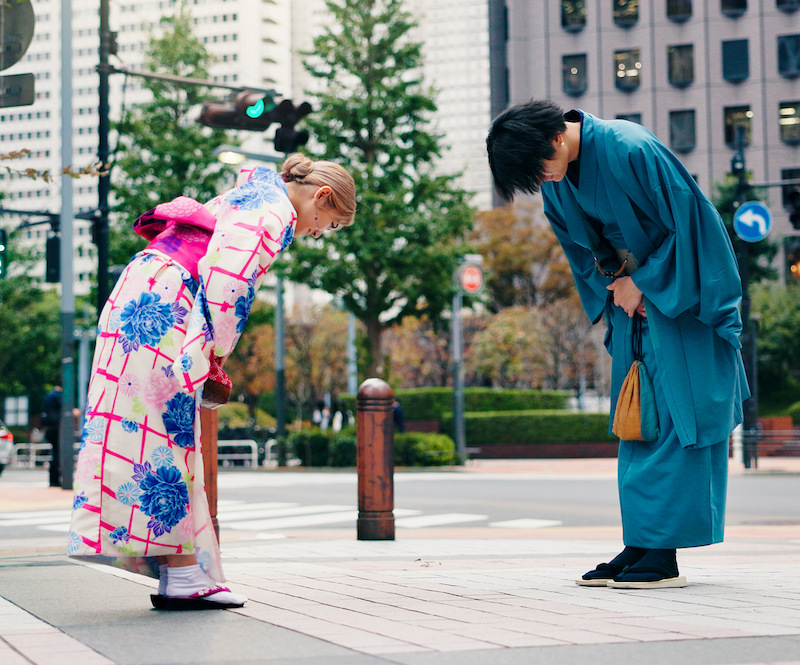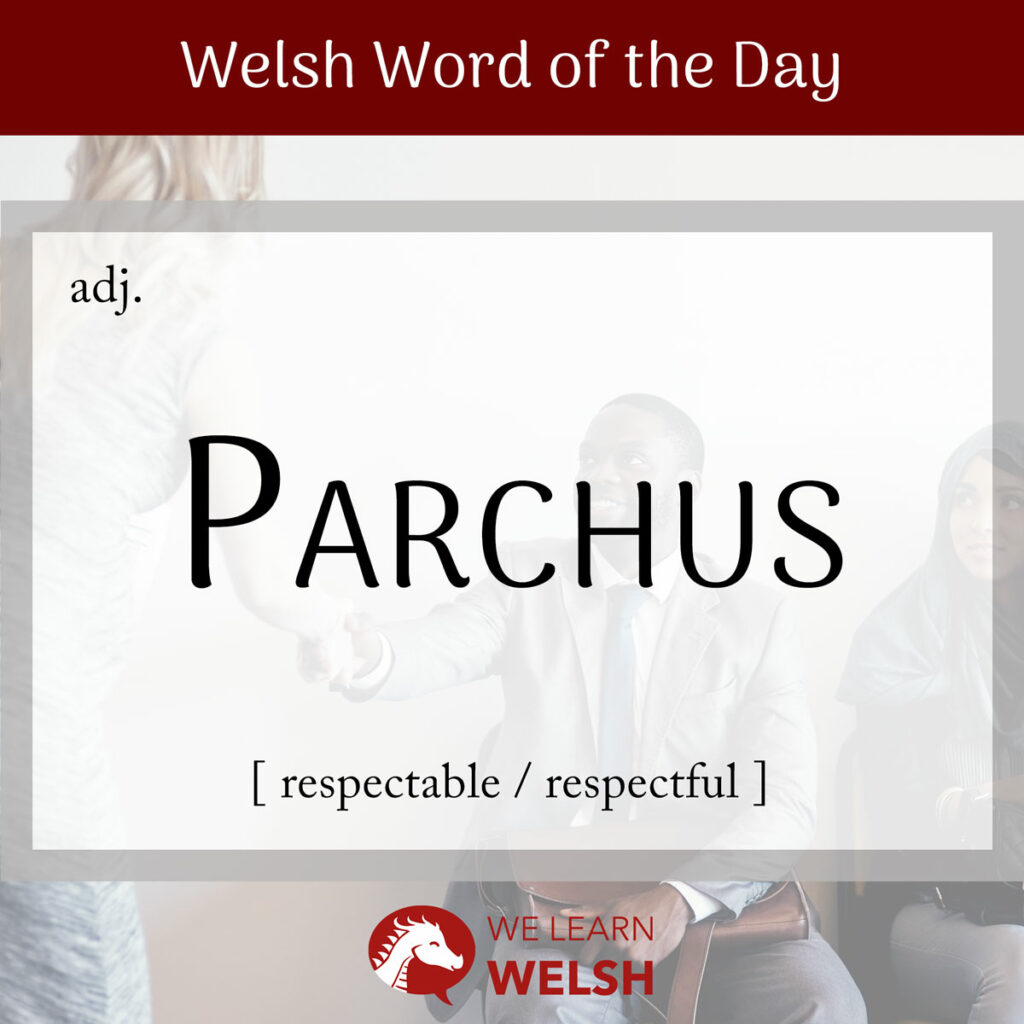Today’s Welsh word of the day is parchus. It can be a little confusing, as it carries the dual meaning of both respectable and respectful. Which interpretation a native speaker naturally leans toward often depends on where in Wales they’re from.
parchus
respectable / respectful
Those who primarily use parchus to mean respectful will often use it for respectable as well. On the other hand, speakers who instinctively interpret parchus as respectable may prefer llawn parch (“full of respect”) when they want to express respectful.
There is also another word for respectable in Welsh: hybarch. However, it tends to sound more formal and old-fashioned. It’s formed by adding the intensifying prefix hy- to parch (respect).
Either usage is completely normal and will be understood by anyone you speak to, and what you mean is generally clear from context. It’s also the go-to translation for respected, though it’s also common to say mawr ei pharch / mawr ei barch (literally, big her respect / big his respect) or uchel ei pharch / uchel ei barch (literally high her respect / high his respect).
Here is how parchus mutates:
Soft mutation
barchus
Nasal mutation
mharchus
Aspirate mutation
pharchus
The most common context in which you’ll see parchus in a mutated form is after the predicative yn. This is a linking word used to make statements involving adjectives. For example, mae’r plentyn yn barchus (the child is respectful) or mae’r frenhines yn barchus (the queen is respectable).
Whatever its meaning, it originates from the noun form parch (respect), itself from the verb, parchu (to respect). The respectable meaning is probably slightly older.
Parchu was borrowed into proto-Brittonic from the Latin word parco, which has a variety of meanings including to forgive and to abstain.
Maen nhw’n barchus iawn yn eu cymuned.
They are well-respected in their community.
The most common antonym is amharchus. It comes from the same root, but with the negative prefix am added, which also causes a nasal mutation. Amharchus is the only way to translate unrespectable but disrespectful can also be di-barch. As I’m sure you’re tired of me saying, what’s most common will depend on dialect!
In English, respectable is often used with a broader meaning—closer to significant, sufficient, or sizeable. For instance, “a respectable number of…” sounds perfectly natural. While the steady influence of English on Welsh means you might occasionally hear a literal translation from a Welsh speaker, it wouldn’t be considered idiomatic. A more natural Welsh equivalent would be nifer dda o… (“a good number of…”).
But aside from this, parchus can be used as a near-exact equivalent of either respectable or respectful. For example, teulu parchus is a respectable family, or to be parchus tuag at rywun is to be respectful towards someone. The common gravestone inscription er parchus gof means in respectful memory.
Or take for example the 2020 S4C comedy-drama Merched Parchus – this mean Respectable Girls. It also happens to be a show I’d really recommend!
Mae bod yn barchus o wahanol farnau yn bwysig iawn.
Being respectful of different opinions is very important.
As you might expect, this word turns up a lot in organisations’ statements of gwerthoedd (values) – schools will expect their children to be parchus (respectful), caredig (kind), cyfeillgar (friendly) and gweithgar (hard-working). Cwmnïau (companies) encourage employees to be parchus o bawb (respectful of everyone) in order to foster cydraddoldeb, amrywiaeth, a chynhwysiant (equality, diversity and inclusion).
But for me, the word parchus conjures images of, more than anything, y prifardd (the chief bard). This is a title given to Welsh poets who have won y gadair (the chair), the highest and most respected literary prize in Wales. It’s about as parchus (respectable) as you can get in a country obsessed with the written word.


